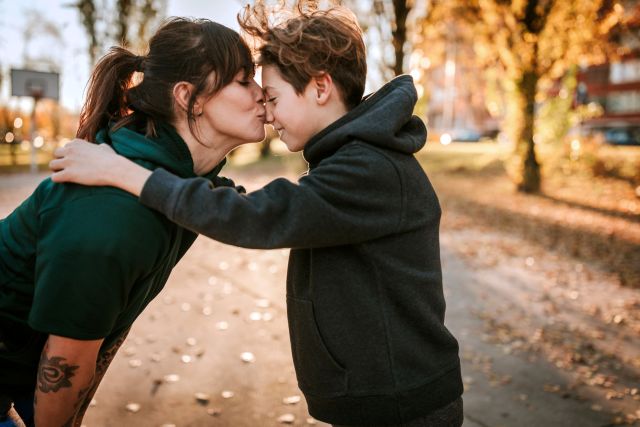Updated on January 22, 2024.
Every week, it seems like there’s a new tragedy in the news, whether a shooting or a violent attack or a natural disaster somewhere in the world. With 24-hour news coverage and smartphone news feeds and social media platforms updated by the minute, distressing images have an unprecedented immediacy in our lives.
Parents worry about these kinds of tragedies all the time, not only about their children’s actual safety but how they’ll react to hearing about scary events that occur in their community or somewhere far away.
What can we do or say to help them feel safe? Here’s what the experts suggest.
Manage the conversation
Research shows that children’s stress levels increase when learning about disasters, terrorism, or frightening stories on the news, says psychologist Deborah Serani, author of Living With Depression. To help reduce the anxiety, try to limit exposure to graphic news images on television, online, and in newspapers and magazines, she says. “Be watchful of other communication, as well,” she adds, “like listening to radio broadcasts and even conversations that occur at the bus stop or school.”
Initiate your own conversations, keeping the child’s age in mind, says child and parenting expert Michele Borba, EdD, author of books including The Big Book of Parenting Solutions: 101 Answers to Your Everyday Challenges and Wildest Worries.
“Kids ages 5 to 9 may surprise you with questions such as ‘Why do people kill?’” Borba says. “Be honest. You may not know that answer, but don’t be turned off by those questions. You want your kids to ask—and keep asking.”
Always tailor the facts to your child’s level of understanding and give only those details that they really need to know.
Model calmness
“It's important for adults to not overwhelm children with their own anxieties,” says Serani, “and to keep factual information in the forefront instead of responding emotionally to whatever is going on.”
In this case (as in many when it comes to parenting), actions speak louder than words, agrees Borba: “How you act—especially during times of trauma and uncertainty—does make a difference on how your kids act. If you are feeling a bit jittery after a tragedy, imagine how our kids must feel.”
“Children mirror our behavior,” Borba continues. “If you're concerned that ‘This could happen here!’ or ‘No one is safe anymore!’ you will cloud your child's view of the world. Watch what you say.”
Offer reassurance
Reassurance is the key to helping children understand scary events. Reassure them by letting them know that the likelihood of something bad happening to them—or even near them—is very low, says Serani.
Tell them, “You are safe, I love you,” says Lynne Kenney, PsyD, a practicing pediatric psychologist and the author of The Family Coach Method. “If your child asks, ‘Mom, is the grocery store still safe?’ answer with, ‘Honey, this was about one angry man hurting people; our grocery store is safe.’”
Importantly, affirm to your child that they are not responsible for what happened. It may seem unreasonable to adults, but children often blame themselves for events that are outside of their control.
Look for signs of stress—and take time to recover
Be patient when it comes to moving on from the trauma of witnessing or learning about a frightening event. Children may exhibit a range of signs in response to a traumatic experience, depending on their age.
For example, preschool-age children may cry more than usual, have nightmares, may eat less than usual, and may exhibit separation anxiety. Elementary school-age children may have trouble concentrating or sleeping and may seem anxious and fearful. Middle and high school-age children, may seem depressed, exhibit eating disorders or self-harming behaviors, and may seek out drugs or alcohol.
Know that children move on at different speeds. If your child does not seem to be recovering from the event, consider reaching out to your healthcare provider. They may refer you to a mental health professional trained in trauma treatment.
If you have been closely affected by a disaster, you can call or text the Disaster Distress Helpline at 1-800-985-5990. If your child appears to be in crisis, reach out to the 988 Suicide and Crisis Lifeline for confidential support available 24/7.
Meanwhile, try not to disrupt your daily routine even if something locally or globally is making headlines. “Structure and predictability grounds children—and adults—as we move through difficult moments,” says Serani.
Emphasize the good
It’s so important to assure your children that there's more to the world than threats and fear and hate, says Borba. “Point out the wonderful simple gestures of love and hope that people do for one another during a tragedy,” she says. “Talk about the heroes: the bystanders, the paramedics, the doctors.”
The world will feel like a safer place if your children can focus on the acts of kindness rather than the acts of madness.







